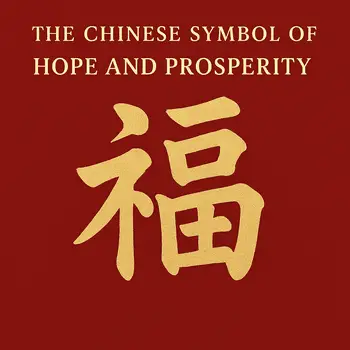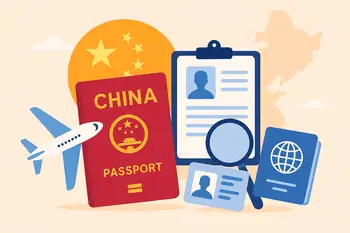
Moving to a new country is an exciting adventure, but it comes with challenges—especially when it comes to ensuring a quality education for your children.
For expatriate families in China, understanding the education system and associated costs is crucial to making informed decisions.
This guide provides a detailed overview of the schooling options available for expat children in China, including international, bilingual, and local schools, along with practical tips for managing costs.
Overview of the Education System in China
China’s education system is renowned for its rigor and emphasis on academic excellence.
For expatriate families, there are three main schooling options to consider: international schools, bilingual schools, and local Chinese schools.
Each has its own advantages, challenges, and costs.
1. International Schools
International schools are the most popular choice for expat families due to their globally recognized curricula and English-medium instruction.
- Curriculum: Most international schools in China offer programs such as the International Baccalaureate (IB), British (A-Levels), American (AP), or other national systems. These curricula are ideal for families planning to relocate again or for children aiming to attend universities abroad.
- Language: English is the primary medium of instruction, with Mandarin often taught as a second language.
- Facilities: International schools typically feature state-of-the-art facilities, extracurricular programs, and a diverse student body.
- Fees: Tuition fees range from $20,000 to $50,000 or more annually, depending on the school and grade level. Additional costs, such as application fees, uniforms, and transportation, can add thousands of dollars to the total.
Examples:
2. Bilingual Schools
Bilingual schools offer a blend of international and Chinese curricula, making them a middle-ground option for families seeking affordability and cultural integration.
- Curriculum: These schools combine international programs (e.g., IB or Cambridge) with elements of the Chinese national curriculum.
- Language: Instruction is in both English and Mandarin, helping students become proficient in both languages.
- Facilities: Many bilingual schools have modern facilities and a wide range of extracurricular activities.
- Fees: Tuition fees range from $10,000 to $30,000 per year, making them more affordable than international schools.
Examples:
3. Local Chinese Schools
Local Chinese schools are the most affordable option but may pose challenges for non-Mandarin-speaking expat children.
- Curriculum: These schools follow the national curriculum set by the Chinese Ministry of Education, which emphasizes math, science, and Chinese language.
- Language: Mandarin is the primary language of instruction, which can be a barrier for expat children unfamiliar with the language.
- Facilities: Facilities vary widely, with some schools offering excellent resources and others being more basic.
- Fees: Tuition fees range from $1,000 to $5,000 per year, depending on the school and location.
Examples:
- Local public schools in major cities like Beijing, Shanghai, or Guangzhou often accept expat children, but admission policies vary by region.
Factors to Consider When Choosing a School
1. Curriculum and Academic Standards
Choose a curriculum that aligns with your child’s educational needs and future plans.
International curricula like IB or A-Levels are globally recognized and flexible, while bilingual schools offer a mix of international and local education.
2. Language of Instruction
If your child is not fluent in Mandarin, international or bilingual schools may be the best option.
However, local schools can be a good choice for younger children who can adapt quickly to a new language.
3. School Environment and Culture
Visit potential schools to assess their environment and culture.
Look for schools that align with your values and provide a supportive atmosphere for your child.
4. Extracurricular Activities
Extracurricular programs are essential for a well-rounded education.
Check if the school offers activities that interest your child, such as sports, arts, or music.
5. Location and Commute
Consider the school’s location and the daily commute.
A long commute can affect your child’s well-being and academic performance.
6. Special Needs Education
If your child has special educational needs, research schools that offer tailored support.
Some international schools, such as The British School of Beijing, provide specialized programs.
Understanding School Fees
School fees in China can vary significantly depending on the type of school.
Here’s a breakdown of common costs:
- Tuition Fees: The largest expense, ranging from $1,000 to $50,000 annually.
- Application and Registration Fees: Non-refundable fees ranging from $100 to $500.
- Capital Levy Fees: Some schools charge annual or one-time fees for infrastructure, which can cost thousands of dollars.
- Uniforms and Supplies: Expect to pay $200 to $1,000 per year.
- Transportation: School bus fees range from $1,000 to $5,000 annually.
- Meals and Snacks: Meal plans can cost $500 to $2,000 per year.
- Extracurricular Activities: Additional fees may apply for specialized programs or sports teams.
- Insurance: Health and accident insurance may be required, adding another layer of expense.
Tips for Managing Education Costs
1. Budgeting and Planning
Create a detailed budget that includes all potential costs, from tuition to transportation.
Planning ahead can help you avoid financial strain.
2. Scholarships and Financial Aid
Some schools offer scholarships or financial aid.
For example, Dulwich College International provides merit-based scholarships.
Research and apply early to increase your chances.
3. Employer Support
Check if your employer offers education subsidies as part of your expat package.
Many multinational companies provide tuition reimbursements.
4. Early Enrollment Discounts
Some schools offer discounts for early enrollment or upfront payment of tuition fees.
Inquire about these opportunities to save money.
5. Compare Schools
Don’t rush your decision. Compare multiple schools, their fees, and what they offer.
A more expensive school isn’t always the best fit for every child.
Conclusion
Navigating the education system and managing school fees for expat children in China requires careful planning and research.
Whether you choose an international, bilingual, or local school, the key is to find an environment where your child can thrive academically and personally.
By understanding the options, associated costs, and practical tips for managing expenses, you can make an informed decision that ensures your child receives a quality education.
For more information, visit:


